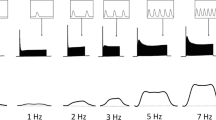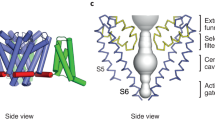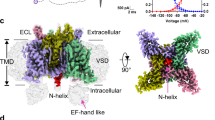Abstract
THE electrical activity of frog skeletal muscle was found to be maintained in a sodium-free hydrazinium solution1,2. In addition, excitability of ventral nerve roots was normal in a hydrazinium solution (unpublished). A series of studies were undertaken to determine the influence of hydrazine on the biochemical properties of conductive tissues, and this communication is concerned specifically with phosphorylation and energy synthesis.
This is a preview of subscription content, access via your institution
Access options
Subscribe to this journal
Receive 51 print issues and online access
$199.00 per year
only $3.90 per issue
Buy this article
- Purchase on Springer Link
- Instant access to full article PDF
Prices may be subject to local taxes which are calculated during checkout
Similar content being viewed by others
References
Koketsu, K., and Nishi, S., Nature, 182, 887 (1958).
Koketsu, K., and Nishi, S., J. Physiol. (in the press).
Abood, L. G., and Goldman, E., Amer. J. Physiol., 184, 329 (1956).
Abood, L. G., Goldman, E., and Lipman, V., J. Neurochem., 2, 318 (1958).
Ling, G., in “Phosphorus Metabolism”, W. D. McElroy and Glass, 2, 748 (Johns Hopkins, Baltimore, 1952).
Author information
Authors and Affiliations
Rights and permissions
About this article
Cite this article
ABOOD, L., KOKETSU, K. Excitability and Phosphorylation of Muscle and Nerve in Sodium-free Hydrazinium Solution. Nature 184, 725–726 (1959). https://doi.org/10.1038/184725a0
Issue Date:
DOI: https://doi.org/10.1038/184725a0
Comments
By submitting a comment you agree to abide by our Terms and Community Guidelines. If you find something abusive or that does not comply with our terms or guidelines please flag it as inappropriate.



